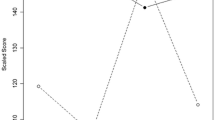Abstract
The correlation between grades and student satisfaction has been interpreted as providing support for belief in a grading leniency bias hypothesis. That is, easy graders are assumed to receive better evaluations than hard gradersbecause they are easy graders. Howard and Maxwell have demonstrated that the relationship between grades and satisfaction might be viewed as an expected result of important causal relationships of other variables (student motivation and progress in the course) with satisfaction and grades, rather than simply evidence of contamination due to grading leniency. Eighty-three students in a research methodology course provided data at two points in a semester. Cross-lagged panel correlation analysis was employed to ascertain the direction of casuality in the relationship between student satisfaction and grades. The findings replicate the Howard and Maxwell path analytic results in finding no evidence that a grades-influencing-satisfaction interpretation is more likely than its opposite, namely, a satisfaction-causing-grades one. The weak relationship between grades and student satisfaction, and the study's inability to find evidence to impugn a satisfaction-causing-grades interpretation of that relationship, renders the grade contamination objection to student evaluations even less poignant.
Similar content being viewed by others
Reference Note
Vasta, R., & Sarimiento, R. F. Liberal grading improves evaluations but not performance. Paper presented at the meeting of the American Educational Research Association, San Francisco, 1976.
References
Brandenburg, D. C., Slinde, J. A., & Batista, E. E. Student ratings of instruction: validity and normative interpretations.Research in Higher Education 1977,7 67–78.
Cook, T. D., & Campbell, D. T.Quasi-experimentation: design & analysis issues for field settings. Chicago: Rand McNally, 1979.
Costin, F., Greenough, W. T., & Menges, R. J. Student ratings of college teaching: reliability, validity, and usefulness.Review of Educational Research 1971,41 511–535.
Feldman, K. A. Grades and college students' evaluations of their courses and teachers.Research in Higher Education 1976,4 69–111.
Hildebrand, M., Wilson, R. C. & Dienst, E. R.Evaluating university teaching. Berkeley: Center for Research and Development in Higher Education, University of California, Berkeley, 1971.
Holmes, D. S. Effects of grades and disconfirmed grade expectancies on students' evaluations of their instructor.Journal of Educational Psychology 1972,63 130–133.
Howard, G. S., & Maxwell, S. E. The correlation between grades and student satisfaction: a case of mistaken causation?Journal of Educational Psychology 1980,72 810–820.
Howard, G. S., & Schmeck, R. R. Relationship of changes in student motivation to student evaluations of instruction.Research in Higher Education 1979,10 305–315.
Hoyt, D. P. Measurement of instructional effectiveness.Research in Higher Education 1973,1 367–378 (a).
Hoyt, D. P. The Kansas State University Program for assessing and improving instructional effectiveness. In A. L. Sockloff (Ed.),Faculty effectiveness as evaluated by students. Philadelphia: Measurement and Research Center, Temple University, 1973 (b).
Kenny, D. A. Cross-lagged panel correlation: a test for spuriousness.Psychological Bulletin 1975,82 887–903.
Kenny, D. A.Correlation and causality. New York: John Wiley & Sons, 1979.
Marsh, H. W. et al. The relationship between students' evaluation of instruction and expected grades. Paper presented at the American Educational Research Association Convention, San Francisco, 1976. (ERIC #ED126140).
Palmer, J., Carliner, G., & Romer, T. Leniency, learning, and evaluations.Journal of Educational Psychology 1978,70 855–863.
Powell, R. W. Grades, learning, and student evaluation of instruction.Research in Higher Education 1977,7 193–205.
Pratt, M., & Pratt, T. A. E. C. A study of student-teacher grading interaction process.Improving College and University Teaching 1976,24 73–80.
Rogosa, D. Causal models in longitudinal research: rationale, formulation, and interpretation. In J. R. Nesselroade & P. B. Baltes (Eds.),Longitudinal research in the study of behavior and development. New York: Academic Press, 1979.
Solomon, D., Rozenberg, L., & Bezdek, W. E. Teacher behavior and student learning.Journal of Educational Psychology 1964,55 23–30.
Snyder, C. R., & Clair, M. Effects of expected and obtained grades on teacher evaluation and attribution of performance.Journal of Educational Psychology 1976,68 75–82.
Stumpf, S. A., & Freedman, R. D. Expected grade covariation with student ratings of instruction: individual versus class effects.Journal of Educational Psychology 1979,71 293–302.
Voeks, V., & French, G. M. Are student ratings of instruction affected by grades?Journal of Higher Education 1960,31 330–334.
Worthington, A. G., & Wong, P. T. P. Effects of earned and assigned grades on student evaluations of an instructor.Journal of Educational Psychology 1979,71 764–775.
Author information
Authors and Affiliations
Rights and permissions
About this article
Cite this article
Howard, G.S., Maxwell, S.E. Do grades contaminate student evaluations of instruction?. Res High Educ 16, 175–188 (1982). https://doi.org/10.1007/BF00973508
Received:
Issue Date:
DOI: https://doi.org/10.1007/BF00973508




